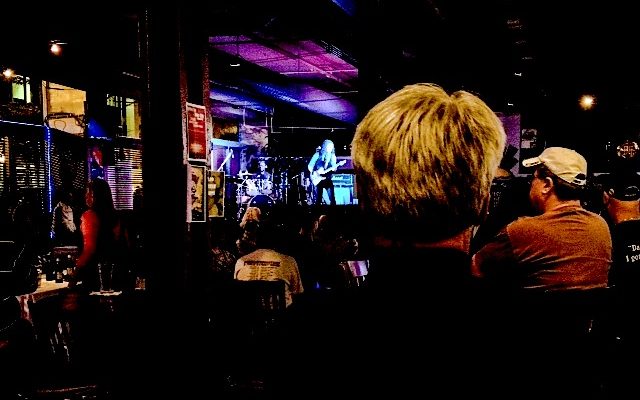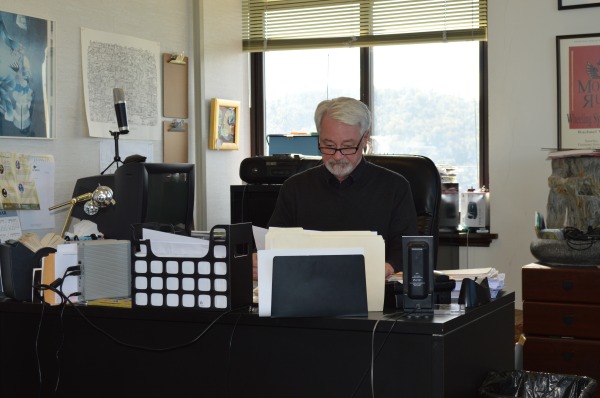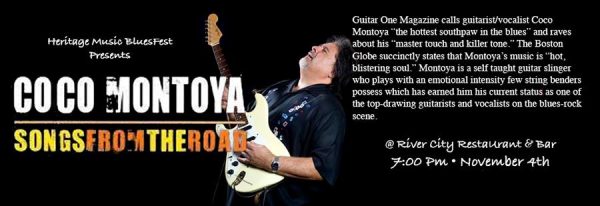By Steve Novotney
Weelunk.com
All of a sudden Bruce Wheeler found himself unemployed in 2000, so he decided to paint his own house.
He needed to think it out. At the age of 46, he needed to reinvent.
Again.
After 12 years of teaching at the Art Institute of Pittsburgh and working for DiCesare Engler Productions, his efforts to make a big idea come true ultimately lead to total unemployment.
“And that’s when I was invited to a neighbor’s party,” said the 60-year-old Wheeler, who is currently the executive director of the Wheeling Symphony. “I did all that painting for six weeks waiting for the solution to come to me, and instead it presented itself at that party.”
Wheeler attended the gathering with his wife of 33 years, Phyllis Sigal, and during the evening he found himself immersed in a conversation about the construction and future use of downtown Wheeling’s new Heritage Port. At the time, the federally funded riverfront was still under construction. Once complete, the park would replace the former Wharf Parking Garage and hopefully spark the resurrection of the Friendly City’s downtown district.
“We were talking about how great it could be, and that’s when I said, ‘But no one in Wheeling knows what to do with it,” the father of two recalled. “And that’s also when it hit me. That’s when the light bulb lit up. That’s when I realized I knew what to do with it.”
So he put down the paint brush, and he went back to work.
Attracting Outside Dollars
Wheeler developed the Wheeling Music Heritage program that included three music festivals during the first summer season at Heritage Port. He scheduled the events, and booked Jazz, folk, and blues artists for June, July, and August dates, respectively, only to see a combination of construction delays and his own cold feet lead to the cancellation of the first two events.
The third, however, did happen.
“The one that took place in 2001 was the Blues Fest. It was three days, and it wasn’t a success at all,” he admitted. “I’m not completely sure how many people attended that first show because when I look at the financial data, there’s so much red on it I don’t like to even look at it. But the venue was virtually empty.”
But Wheeler’s belief in an annual Blues Fest at Heritage Port did not fade despite the red ink, and that’s why the second, third, fourth, fifth, and the sixth Blue Fests took place at the same time every August. Attendance did increase each year, but the financial situation was dire.
“I basically reached the point where I had tapped out all of my resources, remortgaged my house, spent all of my retirement money I had saved up to that point, and had put in all of the financial resources that I could muster up,” he said. “I could only do business with people who were willing to wait until the cash flow got to the point to where I could pay them.
“That’s when I started the conversation with the people at the Wheeling National Heritage Area Corp. about what made sense at that point, and that’s also when I put together the Heritage Port Summer Fest idea that included three more festivals and marketing,” he recalled. “It was a $1.5 million budget, but the majority of the board thought it was too risky at the time.”
One of the board members, though, convinced the others to at least purchase Wheeler’s summer festival idea, and that’s the only reason why the 14th Annual Wheeling Heritage Blues Fest took place in August.
“When WNHAC bought the plan, it got me one more year for Blues Fest. And that was the year that Blues Fest turned the corner,” he said. “But the plan for a Heritage Port Summer Fest still sits somewhere in their office, and it’s the execution of that plan that I think needs to happen.”
Wheeler attends most of the events staged at Heritage Port each summer, including festivals connected to chili, vintage race boats, Italian heritage, river-sailing sternwheelers, and antique automobiles.
“But to be perfectly honest, I’m not a big fan of the rest of the festivals (at Heritage Port) other than the Blues Fest, and it’s not because I’m involved with Blues Fest,” he said. “It’s because, at the beginning of the development of Heritage Port, everyone said the Heritage Port was going to be an economic engine for the development of downtown Wheeling. The events are the fuel, and to be that engine, the events have to bring outside dollars into Wheeling, W.Va.
“For example, many of the vendors that set up during most of the festivals we have now are from out of town. So, unfortunately, we’re sending a lot of dollars out of the area instead of bringing new dollars into the area. That’s the type of event-planning that a facility like that needs to have happen because we need to have events that bring people into Wheeling. And we all know that’s not an easy thing to do.”
In the show business world there is what promoters, venue owners, and entertainers label as, “risk capital.” It refers to invested monies in programs that could turn a profit or be exhausted in defeat. The budget for programming at Heritage Port, Wesbanco Arena, and the Capitol Theatre, however, currently does not include such a line item, and that’s why the vast majority of events which take place at all three venues are either community-related or scheduled by outside promoters who rent the arenas.
Wheeler believes “risk capital” should be invested into one of his presented plans or into something similar to the former Jamboree USA shows that attracted as many as 5,000 people to downtown Wheeling most Saturdays between 1964-1983.
“I’m not talking about the same kind of show that the Jamboree was in its heyday in the 1960s. That’s not going to do it today,” he explained. “But if someone can come up with something akin to what the Jamboree was for those fans then, it might just work.
“Now, do I know what that is? No. But are there enough people who travel for entertainment? Yes, there are, so hopefully someone can develop that package that gains the support it needs and get people wanting to come to Wheeling.”
Extending the Reach
Since Wheeler officially followed Susan Hogan as the Wheeling Symphony’s executive director in January 2010, many changes have taken place with the intention of broadening the reach of orchestral music within the Upper Ohio Valley. The organization has continued outreach programs with local school systems, and it remains popular with the area’s older population, but Wheeler’s quest was to develop a way to attract the interest of the 35-54 demographic.
That’s when another light bulb lit up.
Each symphonic season in Wheeling is split into “Masterworks” and “Pops” performances, and attendance has increased overall because Wheeler was successful with stripping the tuxedo reputation involved with attending such shows with several classic-rock-related events.
“I think shows like ‘The Music of Queen’ being included in our ‘Pops’ series are the kinds of shows that bring people to hear an orchestra who normally wouldn’t be exposed to a live orchestra,” he said. “People already know the music of the Beatles, the music of Led Zeppelin, and the music of Queen, so that gets them over that hump of, “Am I going to like it?’ They already know they like the music.
“Those kinds of programs are what bring people to attend the Wheeling Symphony’s ‘Pops’ shows, and that could lead to them to consider checking out an orchestral performance featuring new and historical live, symphonic music.”
But he’s honest. Wheeler readily admits he’ll never know why his Blue Fest is finally a success or why tribute bands performing with the Wheeling Symphony Orchestra has forced the suit-and-tie to sit next to the flannel-shirt-with-jeans-and-boots.
“A person in my position knows the music has something to do with it, but we never really know what flips that switch with everyone who attends,” he said. “But we are happy that switch finally flipped.”




